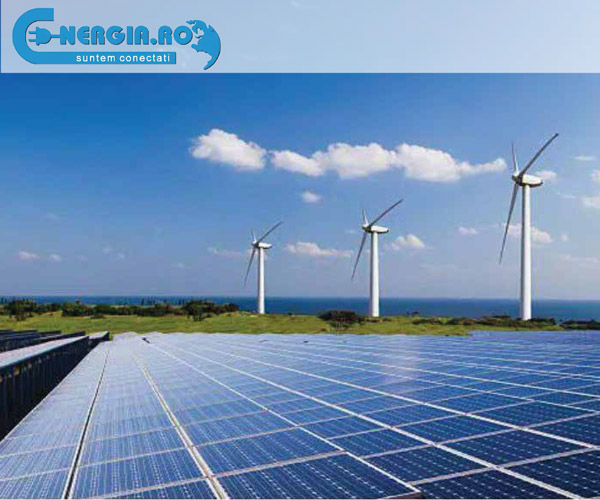BULGARIA: A former deputy minister pointed out how the forest would give a chance for energy activities in the “Maritsa East” complex
Share

Associate Professor Georgi Kostov: Agriculture provides livelihood, and the forest – everything else and agriculture, but someone must understand it
If we make a national inventory of the forests, we will show a greater retention of carbon, and from there the quotas for emissions of Bulgaria would be raised. This is a chance to preserve part of the energy sites, for example in the “Maritsa East” complex, and thus we will not be forced to close them immediately and pay quotas. This is what the vice-rector of the Forestry University Assoc. Georgi Kostov told Dir.bg on the eve of the current “Forest Week”.
Energy is the most interested, he believes. According to his explanation, through the forest inventory, the so-called a national reference level of carbon quotas, which is set once every 10 years and is greatly underestimated in our country, and a higher reference level allows more of our economic activities to be compensated. At the moment, the emissions absorbed by our forests cover more than 90% of the emissions from agriculture, and therefore we do not pay fines for agriculture. So, the inventory of the forests would make it possible to cover part of the emissions of the energy industry, the associate professor of forestry and former deputy minister of agriculture is convinced.
The hidden potential
Something that we do not pay attention to, but which is currently of economic interest at the world level, are the things related to the deposition of carbon dioxide (CO2) in the wood in our forests, Prof. Kostov pointed out. The Paris Agreement and the Green Deal create an emissions market and the existence of fossil fuels is called into question if there is no offsetting mechanism to capture the carbon dioxide released.
Forests are the most complex and the only systems that permanently retain carbon dioxide – just 1 cubic meter of wood retains about 2 tons of CO2, he pointed out and emphasized: “1 ton of dry wood is equal to 3.8 tons of CO2, because carbon is held back, and the oxygen has come to breathe it and fix the air.’
Therefore, continued the expert – when we cut a tree, if we burn it, we return this CO2 to the atmosphere, but if we invest it in furniture, in industry, in construction, as the EU forest strategy aims, then we keep this CO2 for a very long time detained. “The EU 2030 Strategy says – let’s preserve biodiversity, but the second thing it says is: New European BAUHAUS. European Bauhaus means replacing cement and iron, which are energy-intensive, with wood, and that is extremely important,” he added.
The problem of declining forest growth
Why in recent years have we witnessed a decline in the growth of forests – something that has not happened for more than 60 years and why the recently published sector analysis recommends felling, not conservation, explained Prof. Kostov. According to him, our forests reduce their growth because they reach the peak of their development and, getting old, lose reproductive functions. When it reaches an age of more than 150 years, the forest becomes highly vulnerable. Currently, the average age of our forests is 60 years, but half of our forests – 49% are coppices – were cut down and regenerated by coppices during Ottoman times. This means that the root system of these trees is very old. These aged forests need active felling and transformation into seed forests, Assoc. Prof. Kostov is emphatic.
He pointed out what will happen if we don’t do it now – the forests are becoming overgrown, but the worst thing is that because of climate change, this dry mass that accumulates, in the extreme manifestations of the climate, leads to easy fires. Lukoil’s warehouses are fenced and with lighting, but the forests, where there is much more fuel – 780-800 million cubic meters of wood, are not like that, the docent pointed out and pointed out how we can protect ourselves – by reducing the fuel of the risky places, at least on the ground – what has fallen, what is overgrown.
Gori – disabled?
“A healthy forest gives us everything, but we are on the way to turning our forests into invalids”, stated the associate professor and recalled that forestry arose when people realized that the resource “forest”, which is renewable but also finite, must be be monitored and renewed constantly. The expert is adamant that proactive actions and constant maintenance are needed: “You see that the forest is very dense – you reduce the density, because otherwise it will all fall; you see that there is a danger of catching fire – you reduce the fuel; you see that it is old and still has seeds – you regenerate it so that a young forest appears and you take the old wood.’
For a number of reasons, it has already become socially reprehensible even to say that the forest should be managed actively, shared the former Deputy Minister of Agriculture. As proof that the forestry board, despite the criticisms, is coping, he pointed out that 57% of the country’s forests are in “Natura 2000”, which means that our areas have preserved biodiversity. Prof. Kostov, however, is not a supporter of the thesis that if the current management has not prevented the preservation of biodiversity, then we should not change it.
According to him, the views that as soon as the forests are in “Natura” we should declare them absolutely protected and not do anything in them are incorrect. “Exactly the opposite – the protection of biodiversity must be combined with the work in these territories,” the associate professor is emphatic. “It is increasingly difficult for us to preserve and protect protected natural areas and places for recreation,” he shared, referring to Vitosha, especially the lower part, which is forested.
A quarter of our forests are artificially created
A quarter of the forests in Bulgaria were created by afforestation – saplings were planted or seeds were planted with the plow since 1925, when the “Forest Week” was established, and then the 1950s and 1960s became years of mass afforestation with the active participation of the local population, Prof. Kostov said.
“But these reforested forests are past their peak, they’re not as long-lived as natural forests,” he pointed out, noting that some of the reforestation was just to restore the soil and then bring in native species. “We have pines even on the sea, where they have no place – they are mountain species. For a short time they can exist – they create soil and must be replaced with local broad-leaved trees,” noted the associate professor.
He added that this is also observed in Vitosha: “The trees started to age quickly and dry up, the local people do not allow them to be cut down… We may not cut them down, but they will burn and who benefits from this – the industry, the state that is the owner of the terrain or the local population – no one”.
The underappreciated gifts of the forest
“The forest is not only trees, but also everything else – soil, air, water, forest, landscape, view, from which we all benefit”, emphasized Prof. Kostov. Forest ecosystems contribute essential services to the economy and society such as filtering air and water, sequestering and storing carbon, regulating climate and water runoff, protecting against floods and heat waves, preventing erosion, providing food and recreation.
“In Bulgaria, we pay to buy firewood, to buy boards, but we do not pay in any way for all the other services we receive from the forests and which do not come for free from God. They come from the fact that investments are made in forests to maintain them, and these are – relatively clean air, well-preserved nature and landscapes, drinking water, conditions for recreation, etc., commented Prof. Kostov.
The problem is, he continued, that in order to have the services of the forest, it must be healthy, and in order to be healthy, it must be maintained. Doctors tell us – prevention, prophylaxis and then we stay healthy. Foresters also say – prevention, with appropriate measures.
State policy
The many demands and expectations on the forest will at some point lead to the fact that certain forest areas, in order to keep them forested, to keep them healthy, we will have to subsidize activities to maintain them because they are otherwise inefficient, said Assoc. Kostov. “Why does Vitosha stand like this – because it is inefficient to go and collect the trees one by one and touch them carefully so that it looks nice for tourists. It’s ineffective and someone needs to help. This is the state,” he pointed out and pointed out that the BBR does not have a single program to support entrepreneurs in the forests.
As a former deputy minister, he is convinced that there is no minister of agriculture, no matter what he is called, who will separate from the program for rural areas and not give to farmers, but give to loggers. These should be targeted funds, Assoc. Kostov is categorical and explained why: “Since agriculture provides sustenance at a strategic moment, however, the forest provides everything else, it also provides agriculture, but someone must understand it.”
The foresters have the opportunity to build roads, but the state can also intervene, because the money for the foresters is not enough, Kostov also noted. In the state forests, roads are built using the so-called “Investments in forests” fund – when 1 cubic meter of wood is cut, between BGN 5 and 15 are deducted, which are collected in this fund and are used only for the construction of forest roads and for afforestation, if, for example, it has burned somewhere forest or ice or wind pushed her. But these funds are not enough, since the construction of new roads stopped 40 years ago, and until 2010-2011 we had no money for forest roads. Now this backlog cannot be caught up, he added.
According to him, forest entrepreneurs should be supported for the machines as well. “Now, if you go to the field and you see amazing machines – they were all bought under the rural aid program. Unfortunately, such assistance was not given to the forest entrepreneurs, which is why their park is very outdated,” pointed out Prof. Kostov. “A new machine, medium class, costs as much as 1 combine harvester, but who can allocate these funds, unless they use a preferential bank loan”, expressed astonishment Prof. Kostov.
He noted that state-owned enterprises were restricted from logging: “They cannot carry out such activity under the law, because when the Forestry Act was passed, state-owned enterprises were restricted from carrying out this activity which was already in honest hands – not to take the bread of the private persons’.
According to Prof. Kostov, there are tools to help the sector. “I am very glad that the EC has started to show flexibility under the pressure of the many protests that we see in Brussels and change agricultural policy, because in agriculture things are largely similar – risky. I hope that they will understand that the forest, as a major pricing factor, also needs support,” he concluded.

















